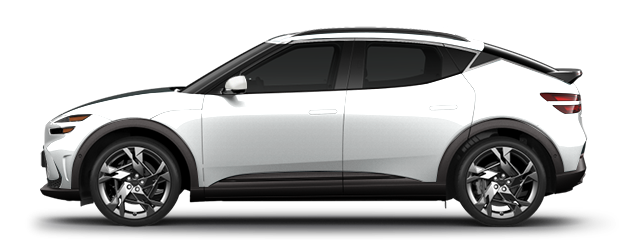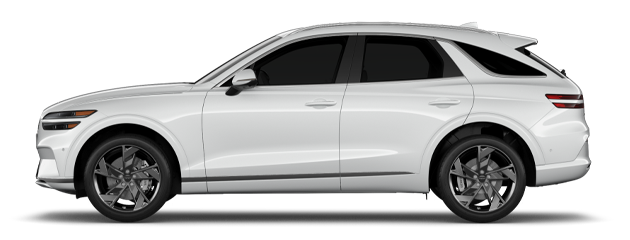-
Models
-
GV80 Coupe

-
ELECTRIFIEDGV70


-
ELECTRIFIEDG80

-
GV80 Coupe

-
ELECTRIFIEDGV70


-
ELECTRIFIEDGV70


-
ELECTRIFIEDG80

-
Shopping
Shopping
Everything you need to get your hands-on Genesis experience.
The latest Genesis news and vehicle launch information.
-
Genesis
Genesis
We strive to create the finest automobiles and related products and services for connoisseurs around the world.
A beauty of innovation visualized by design.
-
Owners
Owners
Everything you need to get your hands on as a Genesis owner.
Download Genesis related materials.
- Offers
Hyundai Supply Chains Act Report
Report Under the Fighting Against Forced Labour and Child Labour in Supply Chains ActHyundai Supply Chains Act Report
Report Under the Fighting Against Forced Labour and Child Labour in Supply Chains Act
(For the fiscal year ending December 31, 2023)
INTRODUCTIONINTRODUCTION
This report is submitted jointly on behalf of Hyundai Auto Canada Corp. ("HACC") and Hyundai Motor America ("HMA"), which wholly-owns HACC (collectively, "Hyundai"), in accordance with the Fighting Against Forced Labour and Child Labour in Supply Chains Act (the "Act") for the fiscal year ending December 31, 2023.
Hyundai affirms its commitment to enforcing strict environmental, social, and governance standards throughout its supply chain, including to prevent and reduce the risk that forced labour or child labour is used at any step in Hyundai's supply chains.
HACC imports and distributes vehicles and parts produced by affiliated and non-affiliated companies, including HMA, its ultimate parent company, Hyundai Motor Company ("HMC") and other Hyundai affiliates. As an importer of vehicles and parts located in Canada that is limited in its sources of vehicles and vehicle parts, HACC relies on the compliance mechanisms of its related party vendors to prevent and reduce the risk of forced labour and child labour in Hyundai supply chains.
Structure, Activities and Supply ChainsStructure, Activities and Supply Chains
HACC is an importer and distributor of Hyundai and Genesis-branded vehicles in Canada. HACC is headquartered in Markham, Ontario. It is wholly owned by HMA. HACC primarily distributes vehicles and parts through a network of independent dealerships across Canada. HACC does not design or manufacture any vehicles.
HMA is headquartered in Fountain Valley, California. HMA imports, markets, and distributes Hyundai and Genesis-branded vehicles throughout the United States, through a network of independent dealers. HMA does not distribute or sell vehicles in Canada. HMA does not have an office or operations in Canada.
HACC and HMA are both subsidiaries of Hyundai Motor Company, which is headquartered in Seoul, South Korea.
Supply Chains
HACC purchases the vehicles and vehicle parts that it imports and sells in Canada through three supply chains:
1. Vehicles manufactured by HMC in South Korea
2. Vehicles manufactured by Hyundai Motor Manufacturing Alabama, LLC ("HMMA"), a wholly owned subsidiary of HMA
3. Vehicle parts sold by its supplier in Canada, Mobis Parts Canada Corp. ("Mobis Parts Canada") that are purchased primarily from Mobis Parts Canada's parent company in Korea, Hyundai Mobis.
HMA has similar sources for the vehicles and vehicle parts it sells:
1. Vehicles manufactured by HMC in South Korea
2. Vehicles manufactured by HMMA
3. After-sale vehicle parts and replacement parts from Mobis Parts America, LLC.
HACC and HMA rely on the compliance mechanisms implemented by their upstream related suppliers, HMC, HMMA, and Mobis to prevent and reduce the risk that forced and child labour are used in each of their supply chains.
Due to the role of Mobis Parts Canada, Mobis Parts America and Hyundai Mobis in the above described supply chains, HACC and HMA obtained information from Mobis Parts Canada regarding the supply chain due diligence policies and procedures of the Mobis companies and provides this information in this report.
Policies and Due Diligence ProcessesPolicies and Due Diligence Processes
Hyundai sets out the individual supply chain due diligence policies and processes of HACC, HMA, HMC, HMMA and the Mobis companies in the below sections.
HACC's Operations
HACC Internal Policies
HACC has a number of internal policies that provide for safe working environments for its employees. This includes a "Health and Safety" policy that provides the requirements for safe workplace environments for HACC employees, an "Overtime Work" policy that sets guidelines on overtime work, an "Hours of Work" policy that offers flexible schedules for better work life balance, and a "Disconnecting from Work" policy to support wellness, and minimize excessive sources of stress.
HACC's "Business Ethics and Conflict of Interest Disclosure" policy defines the standards of conduct in relationships with all stakeholders with whom HACC does business. This policy applies to all HACC employees and requires that all employees comply with both the letter and spirit of all laws, regulations and legal requirements that apply where HACC operates. HACC employees are obligated to inform themselves of the abovementioned laws and requirements that are relevant to their particular position or activities.
HACC Supplier Due Diligence Practices
As set out in further detail below, HMC's Supplier Code of Conduct requires its suppliers to conduct specific due diligence and training to ensure they do not employ forced labour and child labour. The Supplier Code of Conduct applies to the suppliers of goods that HACC sources from HMC, HMA, and HMMA. The Supplier Code of Conduct must be adhered to by all existing and prospective Hyundai Suppliers and states that suppliers should: (1) prohibit all forms of forced and child labour in their supply chains; and (2) ensure that they do not produce or provide to Hyundai goods, products, or materials made, in whole or in part, with forced labour.
In regards to goods purchased from Mobis Parts Canada, HACC is aware that Hyundai Mobis has developed and applied an "ESG evaluation toolkit", which it used in 9 business audits in 2023 around the globe, which focused on identifying and eliminating any risk of forced labour or child labour in its supply chain. Through the implementation of supplier self-assessments, Hyundai Mobis identified certain Tier-1 suppliers were considered "high-risk" and conducted on site-assessments of all of these suppliers between August 2022 and January 10, 2023 to ensure that forced labour and child labour was not present at these suppliers' sites.
HACC Ethics Complaint Procedure
HACC maintains a complaint procedure for business ethics violations which is set out in its Business Ethics Policy and Conflict of Interest Disclosure. A HACC employee that believes someone at the company is violating this policy is encouraged to discuss the matter with a supervisor or Director, HR and Administration, or General Counsel and if they still have concerns or do not feel comfortable discussing this issue with any of the above individuals, may contact HACC's third party ethics reporting hotline, "Integrity Counts" by phone, fax, email, anonymous web report, or written letter. This reporting obligation applies to supervisors and managers, who are required to report suspected violations of this ethics policy to HACC's Director, HR and Administration.
HACC ensures that any reported complaint is investigated, and appropriate corrective action is taken. HACC is committed to ensuring that there is no retaliation against any employee who reports a suspected violation of law, ethical standards, safety concern or policy in good faith.
HMC's Operations
As noted above, HMC's supply chain due diligence policies and procedures are integral components of HACC and HMA's supply chain risk management since the goods that HACC and HMA purchase are sourced and/or manufactured by HMC pursuant to these policies.
HMC's Supplier Code of Conduct
HMC's "Supplier Code of Conduct" establishes the standards and conditions it requires of its suppliers. This document was updated in 2023 to include robust procedures designed to prevent the introduction of forced labour, in whole or in part, into HMC’s global supply chains. The Supplier Code of Conduct prohibits the use of forced labour in Hyundai’s global supply chains and requires its suppliers to comply with all applicable labour laws. These standards are reflected in HMA's Anti-Forced Labour Policy (discussed below), which derives from HMC's Supplier Code of Conduct.
The Supplier Code of Conduct requires suppliers to: (1) conduct risk-based due diligence on their supply chains; (2) establish a code of conduct that articulates a position against the use of forced labour at every tier in their supply chain; (3) provide periodic training to employees and sub-suppliers; (4) maintain and implement a remediation plan; and (5) conduct auditing and/or monitoring to confirm compliance with the Supplier Code of Conduct. HMC is contractually entitled to audit its suppliers to ensure they are complying with the Supplier Code of Conduct.
The Supplier Code of Conduct prohibits the use of child labour and forced labour in supplier facilities. These provisions require suppliers to verify the age of all employees, conduct risk-based due diligence involving mapping high-risk supply chains and regions, develop their own codes of conduct and periodic training, and maintain and implement remediation plans in the event forced labour is identified in a supplier's supply chains.
The Supplier Code of Conduct also establishes that suppliers should undertake supply chain due diligence procedures in accordance with the six-step procedure presented in the OECD Due Diligence Guidance for Responsible Business Conduct:
1. Embed responsible business conduct into policies and management systems;
2. Identify and assess actual and potential adverse impacts associated with the enterprise’s operations, products or services;
3. Cease, prevent and mitigate adverse impacts;
4. Track implementation and results;
5. Communicate how impacts are addressed;
6. Provide for or cooperate in remediation when appropriate.
HMC's Ethic Charter and Code of Conduct
HMC's Ethics Charter and Code of Conduct applies to all members and affiliates of HMC, including all employees (including those with responsibilities for procurement and sales) in Korea and elsewhere, direct and indirect subsidiaries, and joint ventures are expected comply with it. HMC also requires all business partners in contractual relationship with HMC to respect the Ethics Charter and Code of Conduct.
The Ethics Charter and Code of Conduct sets out five "guiding principles". One of these principles, "Respect for Executives and Employees", specifically requires adherence to the labour laws of the countries where HMC has business operations and bans the use of child labour and forced labour.
HMC’s Procurement Contracts
In 2023, HMC made changes to its standard procurement contracts for Tier-1 suppliers to address forced and child labour. HMC’s updated procurement contracts require that (1) suppliers warrant no goods or inputs made whole or in part using forced or child labour will enter a supplier’s supply chains; (2) the supplier cooperate with HMC by providing information upon request to comply with the supplier’s warranty against the use of forced or child labour; (3) HMC retains the right to conduct independent audits of a supplier’s facilities and manufacturing records to ensure compliance with the supplier’s warranty against the use of forced or child labour; and (4) HMC has the right to take remedial action against suppliers that do not comply with these requirements, up to and including termination.
HMA's Operations
HMA's Due Diligence Procedures
HMA maintains and implements policies and procedures regarding forced and child labour, and it works closely with HMC to ensure that HMA does not employ forced labour or child labour or source goods from suppliers that do so. HMA's current and ongoing supply chain mitigation efforts that are performed in conjunction with HMC include but are not limited to developing risk-based screenings of suppliers using software and manual processes, screening suppliers using mapping tools, including for suppliers and products identified as presenting heightened forced-labour risks, and conducting "mock detention exercises" in which it analyzes transaction- specific traceability documentation from higher-risk suppliers and sub-suppliers. Representatives from HMA meet with HMC every two weeks to review and benchmark progress regarding company-wide supply chain due diligence efforts, while identifying areas for improvement, utilizing advice from outside counsel. HMA also supervises and coordinates with HMMA regarding HMMA’s supply chain mitigation efforts.
HMA's Anti-Forced Labour Policy
In 2023, HMA published its Anti-Forced Labour Policy, which has been disseminated to all executives and employees. Executives and employees must adhere to this policy when collaborating or working with suppliers, joint ventures, agents, affiliates and other business partners, and in so doing, encourage stakeholders and business partners to respect this policy in opposing the use of forced labour in supply chains. The Anti-Forced Labour Policy was drafted in order to match the requirements of HMC's Ethics Charter and Code of Conduct, Human Rights Charter, and Supplier Code of Conduct.
In accordance with Hyundai and its affiliates' global commitment to respecting human rights, HMA opposes any form of forced labour in its operations or within global supply chains, and HMA expects suppliers to undertake the measures set out in HMC's Supplier Code of Conduct, including notifying HMA of any credible allegations of forced labour risks, and cooperate fully in all due diligence procedures, whether they be those of a Hyundai affiliate or third parties.
The Anti-Forced Labour Policy also encourages any executive, employees, and other stakeholders who are aware of a violation of this policy to report such violation through the HMA reporting hotline, the details of which are set out below. Reports can be made by email or telephone call. The Anti-Forced Labour Policy specifies that HMA has zero tolerance for retaliation against anyone who raises such a concern in good faith.
HMA's Ethics Complaint Procedures
As part of its anti-forced labour policy, HMA operates a toll-free hotline that is available 24 hours a day, 7 days a week to anonymously report potential instances of forced labour in Hyundai’s supply chain. Information about this hotline was recently disseminated to employees in connection with the roll-out of HMA's Anti-Forced Labor Policy. HMA employs a zero-tolerance policy against any retaliation against employees who report forced labour concerns, and ensures the process is confidential. The hotline accepts reports of any allegations of forced and child labour related to any Hyundai company or supplier to support compliance across Hyundai's global family of companies.
Mobis Companies' Operations
Mobis Parts Canada and Mobis Parts America are respectively HACC and HMA's primary suppliers of parts. Hyundai understands that these companies work together with their parent company, Hyundai Mobis (collectively "Mobis") to implement several preventative measures to address risks of forced labour and child labour in their supply chains.
Collectively, Mobis adheres to Hyundai Mobis' Code of Conduct for Partners, which was last reviewed in 2023, and requires that Mobis suppliers and any of their sub-suppliers have zero tolerance for forced labour and child labour, conduct due diligence and training, and implement their own codes of conduct against forced labour. With respect to its own operations, Mobis Parts Canada conducts annual and anonymous "Cultural and ESG" surveys with its employees to review employee morale and are a forum for whistleblowing in regards to forced labour and child labour, while also assigning a Chief Security Officer and Compliance Manager in 2023 to monitor issues relating to forced labour and child labour.
Mobis Parts America's contract with HMA permits the Hyundai company to conduct audits to ensure that Mobis Parts America complies with forced labour and child labour laws.
Risks of Forced Labour or Child LabourRisks of Forced Labour or Child Labour
Given the number of components and inputs that go into a finished motor vehicle and the complexity of automotive global supply chains, there is a risk of forced labour and child labour within automotive supply chains. Both HMA and HACC purchase and source vehicles from international supply chains, and specifically from HMC. In 2023, HMC's suppliers were mostly located in Asia, with a significant percentage of suppliers located in Europe and in the Americas. HMC identifies and manages risks of forced labour and child labour in its supply chains by identifying the following factors and reviewing related information disclosed by government, research and media organizations:
1. Country of supplier;
2. Business type;
3. Supplied part; and
4. Raw or subsidiary material.
HMC uses a document-based assessment using an online evaluation system where suppliers respond to evaluation indicators by means of a self-diagnosis and submit documentary evidence. HMC also selects certain suppliers for on-site due diligence, using ESG consulting and due diligence experts.
As set out in HMC's 2023 Sustainability Report, HMC identified that a certain subset of tier-1 suppliers were "high-risk" based on the results of the document-based assessments, and conducted on-site due diligence of certain tier-1 suppliers, including suppliers identified as high risk suppliers. While some of the identified high risk suppliers were found to have areas that required improvement in regards to ethics, environment, labour and human rights or safety and health issues, all such suppliers established improvement plans that were confirmed as implemented by the time the 2023 Sustainability Report was published. As noted above, HMC, together with HMA and HMMA, works as part of the Global Anti-Forced Labor Working Group to develop best practices regarding mitigation of forced labour and child labour risks in Hyundai's supply chains. The risks identified by HMC described above are considered alongside HMA and HMMA.
A specific source of supply chain risk that HMC has identified involves the use of third-party staffing agencies by suppliers to hire workers. This risk was reflected in 2023, when HMC became aware that specific HMMA suppliers had employed underaged labour as a result of misrepresentations by third-party staffing agencies in regards to the age of workers that it recommended. HMC and HMA have since communicated to its suppliers that they should cease business relationships with these third-party staffing agencies.
Remediation MeasuresRemediation Measures
HMA and HACC understand the importance of addressing any instances or allegations of forced labour or child labour employed by Hyundai, its affiliates, or its suppliers to remedy the misconduct and ensure that it does not recur.
In 2023, after learning that two suppliers to HMMA had been alleged to have employed underaged labour through use of a third-party staffing company, HMA took steps to divest its ownership in one of the two suppliers, required the other supplier to appoint an audit committee specially-appointed by Hyundai to ensure its continued compliance with labour laws, and required both suppliers to end their relationships with the third- party staffing agency that misrepresented the age of its workers.
An audit of all other HMMA suppliers identified no presence of any forced labour or child labour at supplier facilities, and HMA understands that a number of these suppliers have updated their training on child labour laws since 2022 and have created or updated their written policies on forced labour and child labour.
In 2023, HMMA implemented enhanced credential checks of its suppliers and contractors by enhancing its ID badge screenings, and created a Supplier Cooperation Department to enhance due diligence in July 2023, while sponsoring legal training for suppliers in September 2023.
HACC has otherwise not identified forced labour or child labour risks in its own supply chain activities, and as a result has not undertaken any further remediation efforts.
TrainingTraining
Hyundai conducted multiple training sessions regarding its affiliates' obligations in regards to supply chain due diligence in 2023.
In July and August 2023, HMC conducted a Global Sanctions and Supply Chain Compliance Legal Seminar which involved the legal counsel of its global affiliates.
In October 2023, HMA provided training at HMMA to approximately 100 representatives of 50 U.S. suppliers to HMMA, emphasizing the importance of complying with anti-forced labour laws, including the U.S. Uyghur Forced Labor Prevention Act, and the expectations set out in the abovementioned Supplier Code of Conduct and - Forced Labour Policy.
Assessing EffectivenessAssessing Effectiveness
Hyundai assesses the effectiveness of its compliance measures intended to prevent, identify and eliminate the presence of forced labour and child labour in its supply chains in different ways. In 2023, HMA undertook an audit of HMMA's suppliers, which resulted in improved governance practices related to forced labour and child labour prevention. Going forward, Hyundai intends to engage in further testing of its supply chains' compliance readiness.
Ask a Question
Thank You!
We have received your question. A Genesis Experience Manager will reach out to you soon.

























